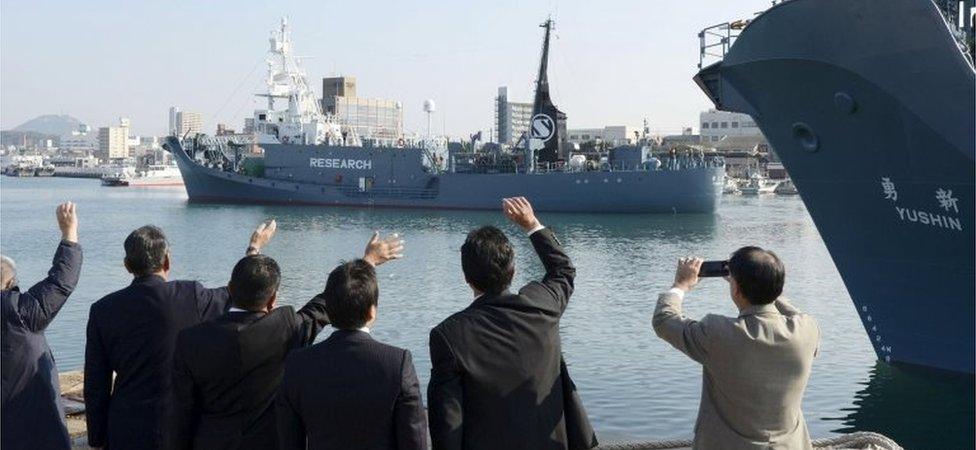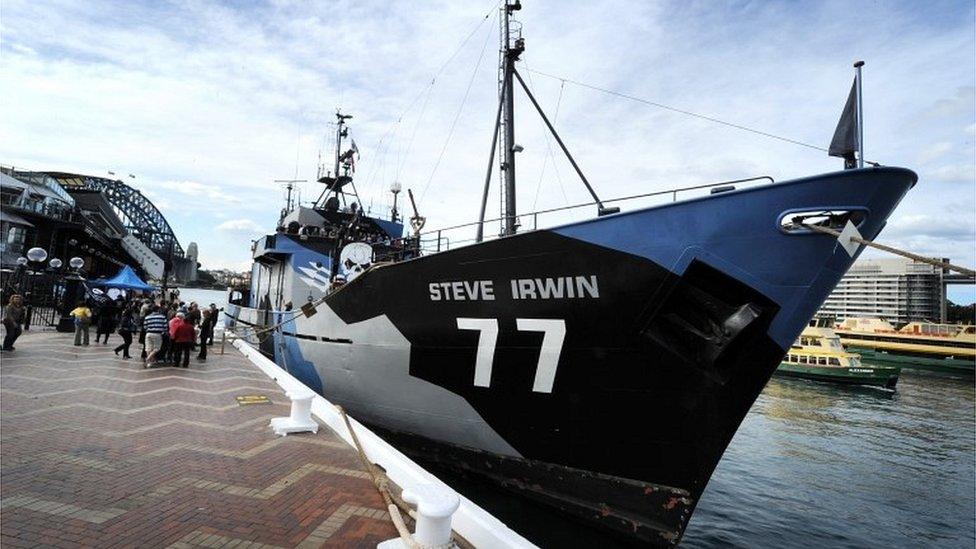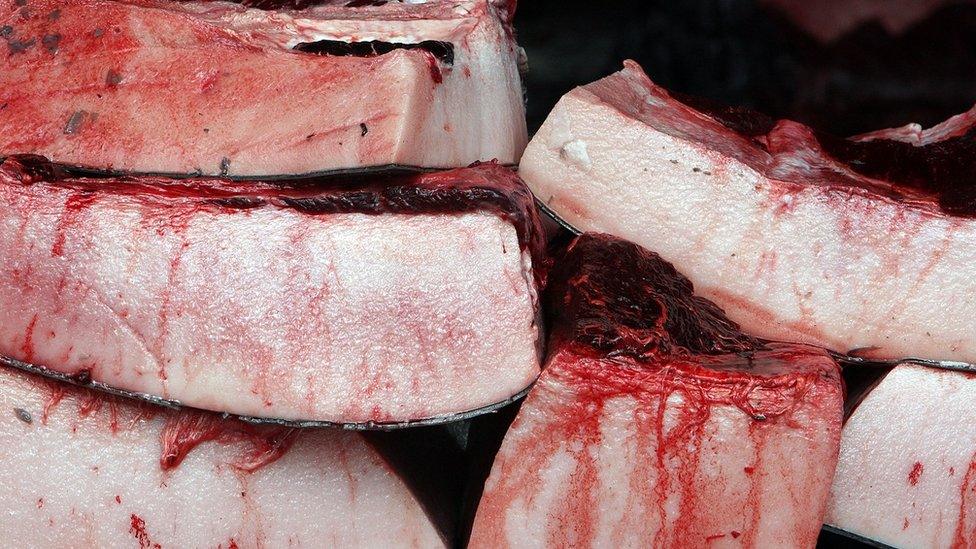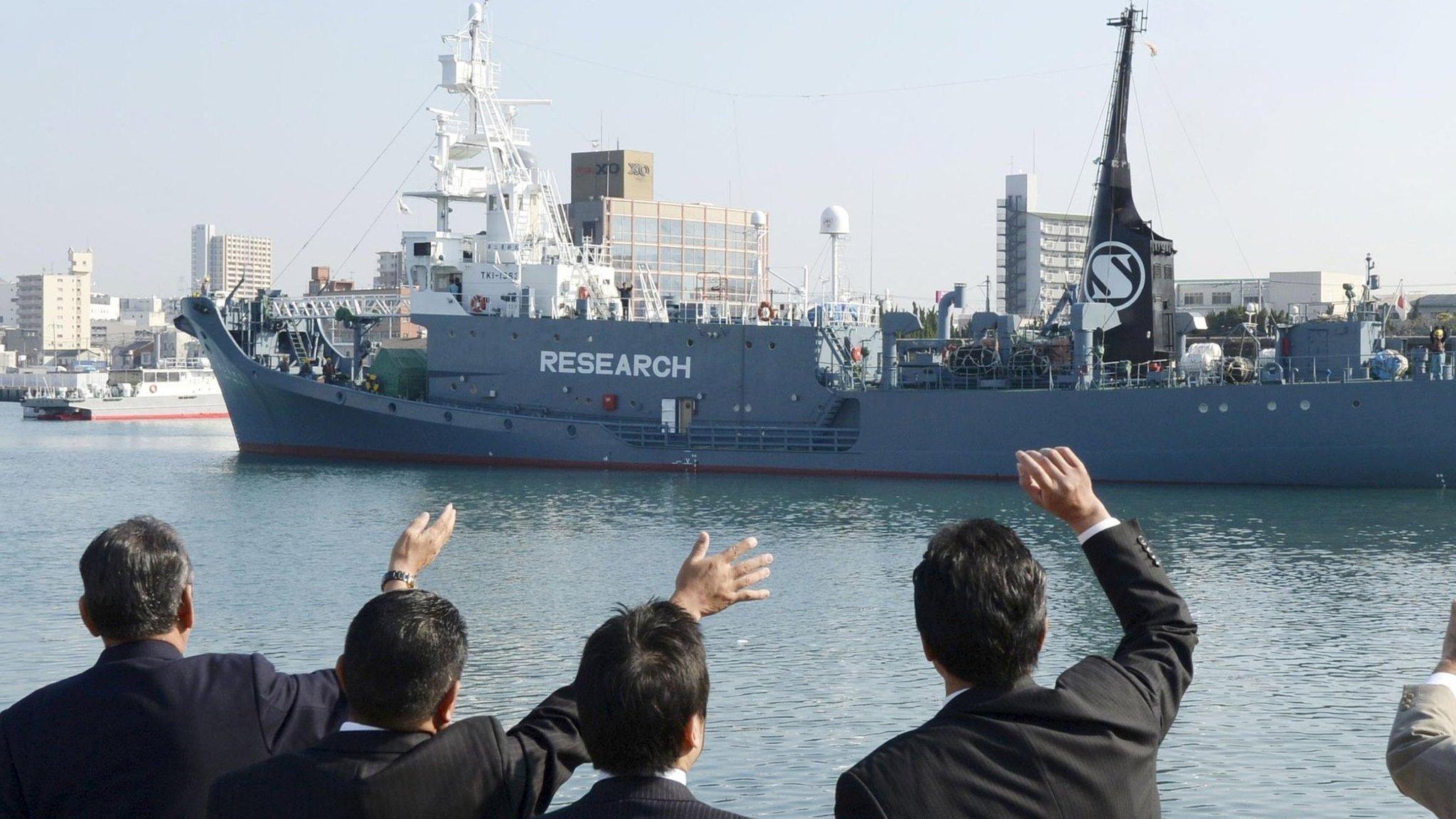Anti-whaling activists fail to find Japan fleet
- Published

Japan's whaling fleet set off for the southern Ocean at the start of December
Anti-whaling activist group Sea Shepherd says it has not been able to find the Japanese fleet which is hunting whales in the Southern Ocean.
Sea Shepherd sends its boats out every hunting season to try to interfere with the Japanese fleet and protect whales.
But it said Japan had "greatly expanded their area of illegal operations" this year, making it hard to find them.
The statement , externalcalled on Australia and New Zealand to help by passing on the co-ordinates of the fleet.

Tradition and science: Rupert Wingfield-Hayes, BBC News, Tokyo

Japan still runs an approved coastal whaling programme
From the late 1940s to the mid-1960s whale meat was the single biggest source of meat in Japan. At its peak in 1964 Japan killed more than 24,000 whales in one year, most of them enormous fin whales and sperm whales.
Today Japan can afford to import meat from Australia and America. There is no deep-sea commercial whaling in Japan. The fleet that is now hunting in Antarctic waters is paid for by Japanese taxpayers to carry out what the Japanese government describes as "scientific research".
Japan's other justification is that it needs to kill hundreds of whales each year to study them. But the International Court of Justice (ICJ) has systematically dismantled that argument. In 2014 it ruled that there was no scientific case for Japan's programme of "lethal research" in the Southern Ocean, and ordered Tokyo to stop.
Read more: Why does Japan keep whaling?

Japan resumed its annual whale hunt in the Southern Ocean in December last year, after a one-year break, despite a global moratorium on whaling.
The four-vessel fleet is aiming to catch 333 Antarctic Minke whales - about one-third of previous targets - and Japan says the hunt is for scientific research, which is allowed under the ban.
But activists say the programme is inhumane, unsustainable and illegal.

Sea Shepherd has managed to significantly disrupt the Japanese hunt in previous years
Sea Shepherd has routinely tried to disrupt the hunt by getting between the whaling ships and the whales, and the two sides have on occasions been involved in clashes at sea.
But in a statement on Monday, Sea Shepherd founder Captain Paul Watson said the activists' ship, the Steve Irwin but struggling to find the fleet.
He said Sea Shepherd had expected Australia or New Zealand to "uphold their obligations" as members of the International Whaling Commission by sending a ship to intercept the whalers.
"This does not seem to be something Australia or New Zealand are willing to do," he said, and asked them to "kindly provide the co-ordinates" so the group could "stop the continuing illegal operations of the renegade outlaw Japanese whaling fleet".
There has been no response from the two governments, but a spokesman for Australia's Environment Minister Greg Hunt said Australia did not accept the killing of whales in any form.
"We will continue to urge Japan to pursue non-lethal methods of research and end its unnecessary whaling programme," the spokesman told AFP news agency.
- Published8 February 2016

- Published1 December 2015
